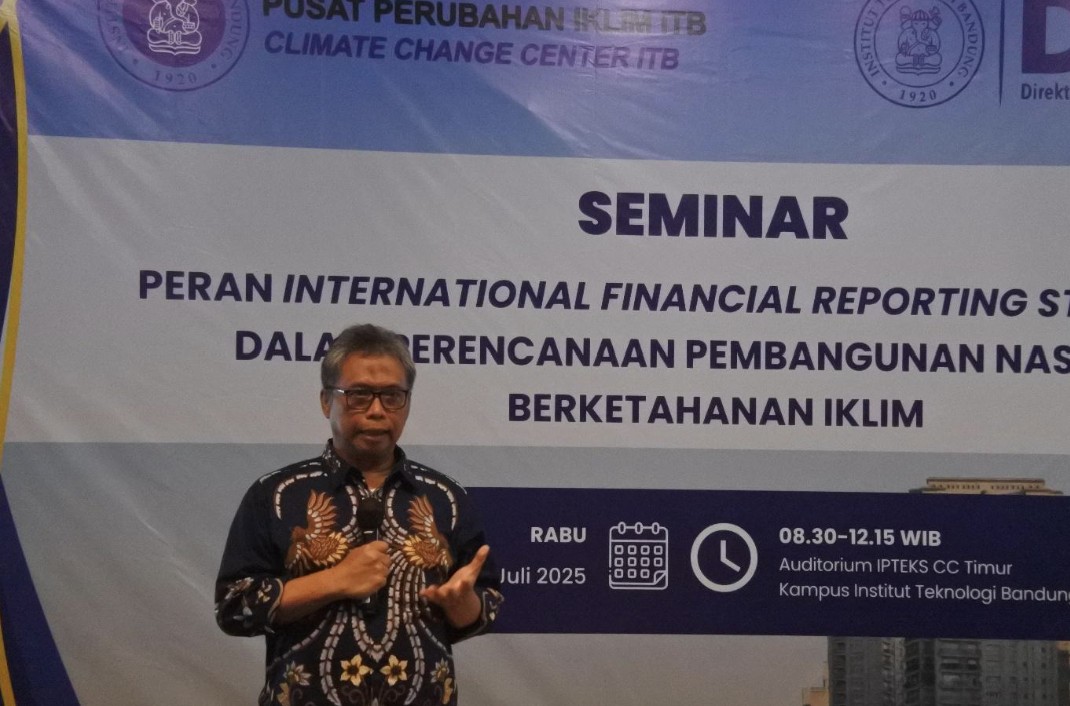Raising Issues Related to Climate and Energy, Matrix Explorer Team Won 1st Place in ASEAN Data Science Explorers 2022
By Asep Kurnia, S. Kom
Editor Asep Kurnia, S. Kom

BANDUNG, itb.ac.id – Some time ago, Institut Teknologi Bandung (ITB) received great news again from their best students who delved in the ASEAN Data Science Explorers 2022 competition held by the ASEAN Foundation & SAP. These students are ITB Master’s Program in Electrical Engineering students Muhammad Fijar Aswad and Rini Nur Fatimah. By forming a team named Matrix Explorer, they managed to win 1st place in national finals as well as become the Indonesian delegates in the regional finals which will be held later in Phnom Penh, Cambodia. The competition was held virtually via Zoom Meeting on August 16, 2022.
"The ASEAN Data Science Explorers 2022 competition aims to invite the younger generation to help shape the future of ASEAN through a data analysis process based on issues currently happening in ASEAN, then propose innovative solutions that are beneficial for the community," Fijar said. They themselves raised the issue of energy and climate action which discussed the correlation between electricity usage and climate change.
"We conducted a literature study, collected data and processed it, and from there we found that the public’s electricity consumption is still less efficient and also contributes to carbon emissions, which causes climate change, and its demand is predicted to keep on increasing," Rini said while explaining the work they have made. She also added that they offered a solution in the form of a mobile app named YESA!, an acronym for Your Electricity Saving Assistant. This application serves to help regulate the electricity usage of the public and also educate them regarding energy-saving culture and the environment. "YESA! has complete features, is useful and of course easy to navigate through," Rini added.
With the YESA! application, people would be able manage their electricity consumption and get the right advice on what to do to reduce their users' monthly electricity bills. "YESA! also provides a lot of educational information that can be accessed easily since the main goal is to also educate the public in order to increase the level of awareness towards the environment,” Rini stated.

Behind their success, it turned out that the Matrix Explorer Team had gone through a lot of preparation. Said preparation took more or less 4 months before the national finals. The first preparation started with determining the theme based on the United Nations Sustainable Development Goals (UN SDGs). They focused on goal number 7 and 13, which are clean and affordable energy and climate change management respectively. Then, they started to search for valid information as well as data related to the issue. Fijar admitted that the most difficult part was finding the data.
During the spare time between finding data, they also learned about suitable techniques to process those data. “We joined a mentoring session held by SAP using SAP Analytics Cloud for data processing. From that training, we formulated solutions based on the issues we have found, and then arranged them to become a storyboard,” Fijar explained.
After going through a fairly long process, their efforts paid off with this victory. Besides that, they are also happy to gain a lot of new knowledge, especially about the current state of the ASEAN countries. "I'm really happy and relieved, and at the same time there is a certain self-satisfaction since I was able to finish it well even though I met several obstacles while working on it," Rini said. They hope that this paper can be realized and used by the community since they can then contribute to reducing the impact of climate change through the small steps they take.
In the future, they have set the target of winning the regional finals at Cambodia and bring good reputation to Indonesia and the campus’ name in the ASEAN stage.
Reporter: Kevin Agriva Ginting, GD’20
Photo Source : Private Documentation of Fijar
Translator: Hanna Daniela Ayu (Aerospace Engineering, 2021)

.jpg)
.jpg)
.jpg)
.jpg)



